Students Learn Science, Ethics at Franciscan University
Studying the sciences at a faithful Catholic college, like Franciscan University of Steubenville in Steubenville, Ohio, prepares students for their careers and for considering the moral dimension of their work. Students are given “tools to work through ethical decisions guided by the light of Truth,” says Dr. Dan Kuebler, dean of the natural and applied science programs at Franciscan University.
Dr. Kuebler believes Franciscan University graduates can make an impact through their witness in healthcare professions and help “rebuild a culture of life.” The Newman Society recently asked Dr. Kuebler to discuss what’s different about studying the sciences at Franciscan University, and about plans for future science offerings.
Newman Society: How does Franciscan University of Steubenville teach the sciences from an authentically Catholic perspective?
Dr. Kuebler: All of our students take an integrated core curriculum that enculturates them in the Catholic Intellectual Tradition and, in particular, the theological and philosophical tradition of the Church. What they learn in these courses allows them to think critically about and fully engage with the learning experiences they have within the science programs.
Within the biology curriculum there are many issues that are discussed from a scientific perspective such as human sexual behavior, in vitro fertilization, cloning, contraception, etc. Students are not only taught about the latest science regarding these topics, but they also engage with their science faculty regarding the ethical and moral dimensions of these topics. Because they have been given the framework by which to engage these issues in their philosophy and theology classes, they are able to articulate and then ultimately defend the Catholic positions on these matters, positions that uphold the inherent dignity of human life.
If we fail to help our students achieve this integration, then we are not preparing them to live out their vocation as Catholic health care providers and scientists. We are not preparing them to be salt and light to a world sorely in need of a witness to the Truth.
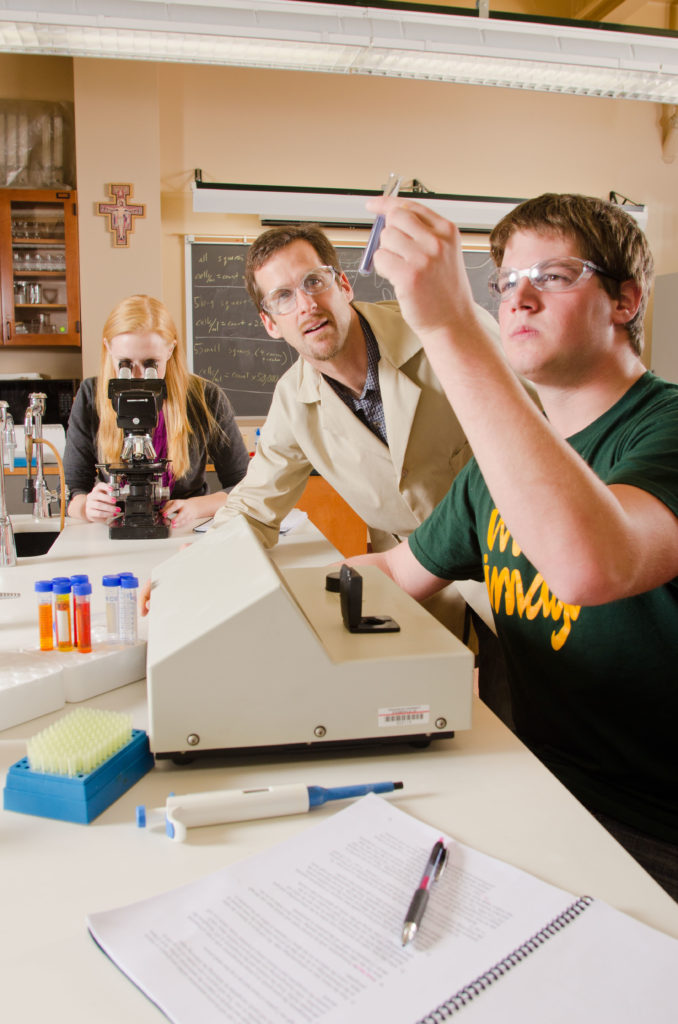
Newman Society: Last fall, Franciscan University unveiled a new biochemistry degree. Can you tell us about this exciting development, and other plans for science offerings at Franciscan?
Dr. Kuebler: The new biochemistry degree offers another science option for our students, particularly those interested in medical school and graduate school. The program takes the best of our existing biology and chemistry faculty along with new biochemistry faculty to produce a program that gets students into the lab doing research early on in the program.
In addition to the biochemistry degree, we are planning on launching four-year engineering degrees in Software Engineering and Mechanical Engineering over the next two and a half years. Currently we have partnership programs in which students spend two to three years on campus taking pre-engineering courses and then finish their engineering degree at a partner school.
While students in the program succeed academically at the partner schools, they do not want to leave the Franciscan academic community given the robust integration of faith, reason and community that exists here between our students, faculty and staff. Providing a high-quality fully accredited Bachelor of Science in engineering here on campus, we will be meeting the needs of these students as well as many other potential Catholic young women and men whom God has called to this field.
We are also expanding the cybersecurity course offerings within our computer science program with the aim of adding a certificate in cybersecurity to allow our students to have the preparation and hands-on experience to enter this burgeoning field.
Newman Society: Why do you think receiving a faithful Catholic education is crucial for future doctors, scientists and healthcare professionals?
Dr. Kuebler: There are so many ethical issues that scientific researchers and healthcare professionals face in the workplace. Too often, a utilitarian ethos drives medical decisions from end-of-life care to fertility treatments and leads to care and decisions that undermine the inherent dignity of human life.
By being immersed in the Catholic intellectual tradition and all its beauty and wisdom, our students have the tools to work through ethical decisions guided by the light of Truth. Their witness and ability to influence other healthcare professionals is the only manner in which we can hope to rebuild a culture of life that respects human life at all stages.
Newman Society: Franciscan is also well-known for its strong theology programs. How do the sciences and theology studies work together? Do many science students also minor in theology?
Dr. Kuebler: Our students must take three theology courses and three philosophy courses to graduate. Many students choose to take just three additional courses to minor in one of these two disciplines. Most of the science programs have five or six free electives, so it’s easy for students to do so.
This type of preparation only helps our students better articulate the beauty of the faith and navigate the ethical minefield of modern science and medicine in such a way as they bear witness to the Truth.
We host many interdisciplinary talks about topics such as gender ideology, fertility treatments, genetic modification and transhumanism so that students can hear from experts in both science, theology and philosophy on these topics. This type of integrated approach is essential for true learning.

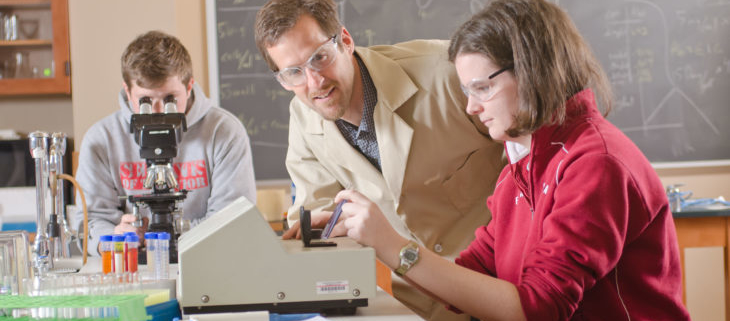
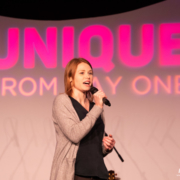
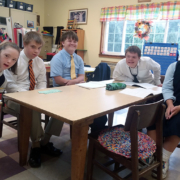
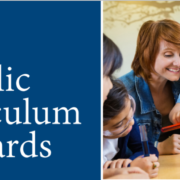

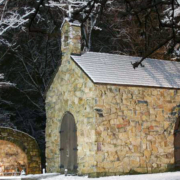
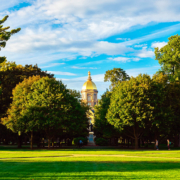 Photo by David Mark via Pixabay CC0
Photo by David Mark via Pixabay CC0